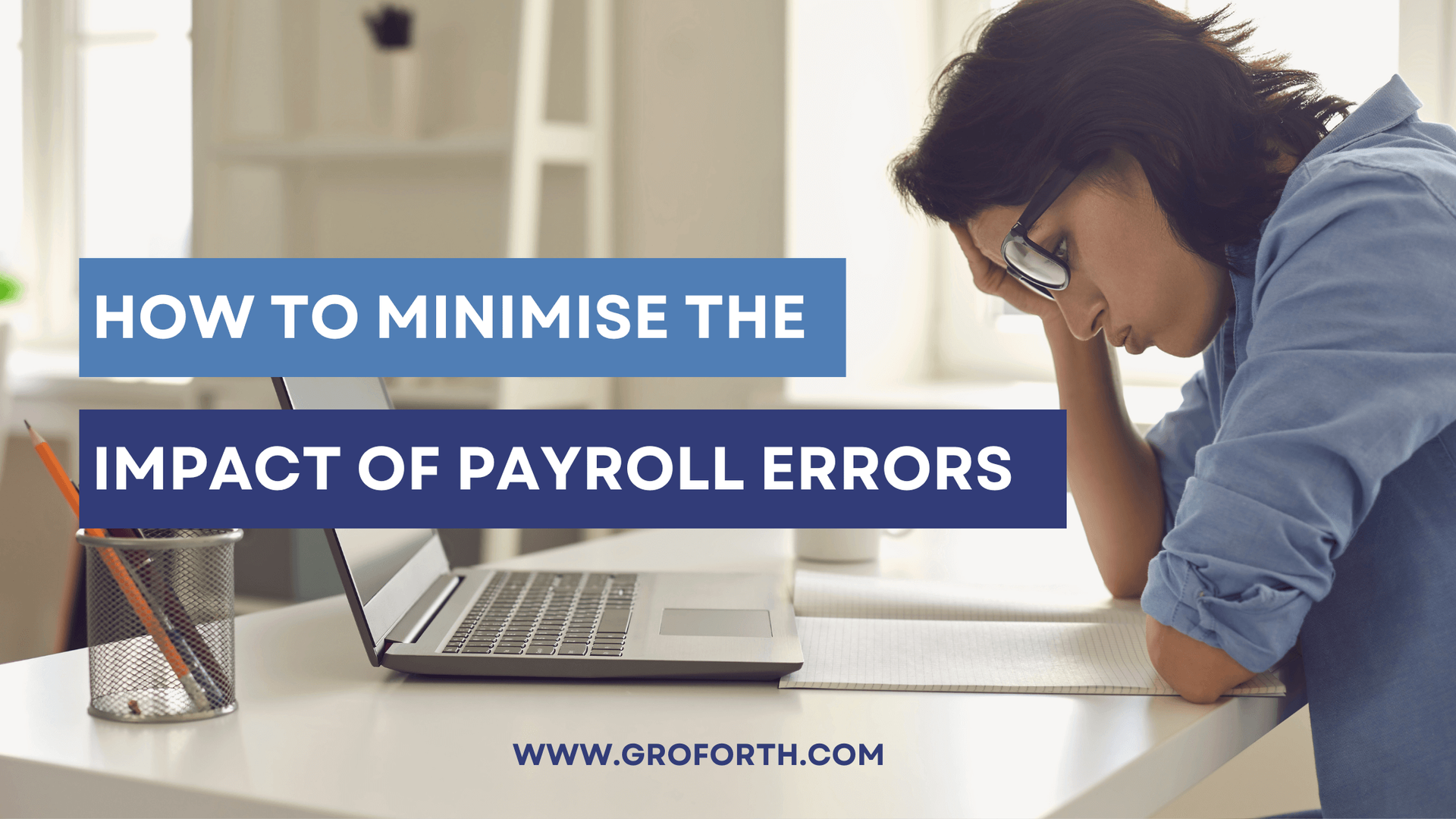How to Minimise the Impact of Payroll Errors

It’s important to anticipate payroll errors and have a strategy in place to manage the fallout if problems occur, says GroForth’s Michelle.
I wonder if (like me) you are promising to make more time for yourself this year? It’s a promise I often make but it’s invariably difficult to keep as demands from the business tend to quickly absorb any time that I manage to free up.
Yes, there are plenty of time-saving strategies worth implementing—delegating tasks, focusing on priorities, cutting down on time spent in unnecessary meetings or answering emails—but the time saved tends to quickly get absorbed elsewhere. This is particularly true if something goes wrong in the business and you have to deal with the impact.
Time lost through data errors
Unfortunately, human error can never be fully eliminated and unless mistakes are quickly spotted and corrected, they can have a significant impact not just on your time but across other departments and functions of your business.
Work processes today are increasingly automated and data driven which means that technology-related issues like unanticipated server downtime or data errors can cause significant disruption unless you have anticipated the problem and taken steps to control the impact.
Payroll errors
Take payroll, for example. Your payroll administrator relies on data provided from a variety of sources including employees, managers, HR and Revenue so it’s important to have systems and processes in place to ensure the accuracy of these data inputs.
However, like any other business process, payroll can run into unexpected problems if technical issues affect a file upload or someone misses a deadline and nobody notices until employees receive their payslips.
Few things are guaranteed to trigger a flood of incoming calls more than employees discovering they have been underpaid. It potentially affects their ability to meet their mortgage, childcare and day-to-day living expenses and can therefore damage their trust in you as an employer, potentially leading them to look for alternative career opportunities elsewhere. In the current market, finding, training and retaining employees is one of the most time consuming tasks facing business managers.
Likewise, errors that result in overpayment can be damaging for your business if they are not dealt with promptly.
Other errors arise from things like poor record keeping, failure to keep up to date, and misclassification of employees and contractors.
Managing the fallout from payroll errors
Unfortunately, even in the best managed companies, glitches will happen from time to time. In my experience, there are two key aspects for management and payroll administrators to focus on when payroll errors occur:
• From a payroll point of view it’s important to work out what has gone wrong, who has been affected, why the problem happened, what needs to be done to fix it, and what steps can be taken to prevent it from happening again. Getting to the bottom of these questions may require cooperation from other departments and your payroll team may need to collaborate with colleagues in management, HR and IT to implement whatever changes are needed to strengthen processes and prevent the problem from happening again. Bear in mind that the error may also need to be corrected with Revenue. Information on how to do this is available on the Revenue website.
• Communication is also critical.The earlier you let your employees know that that there is a problem and that you are working to fix it, the better. It is helpful to have a single point of information. If you have a HR department, perhaps they can liaise with payroll. This helps free payroll to focus on correcting the problem while HR keeps everyone informed of the progress being made to resolve the issue.
Payroll review
Time spent reviewing your payroll processes to identify any shortcomings and minimise the risk of future errors can be very worthwhile. If you don’t have the resources to do this yourself, GroForth may be able to help. For information on the payroll supports that we provide, please check our
Payroll Services page.
GroForth Blog










